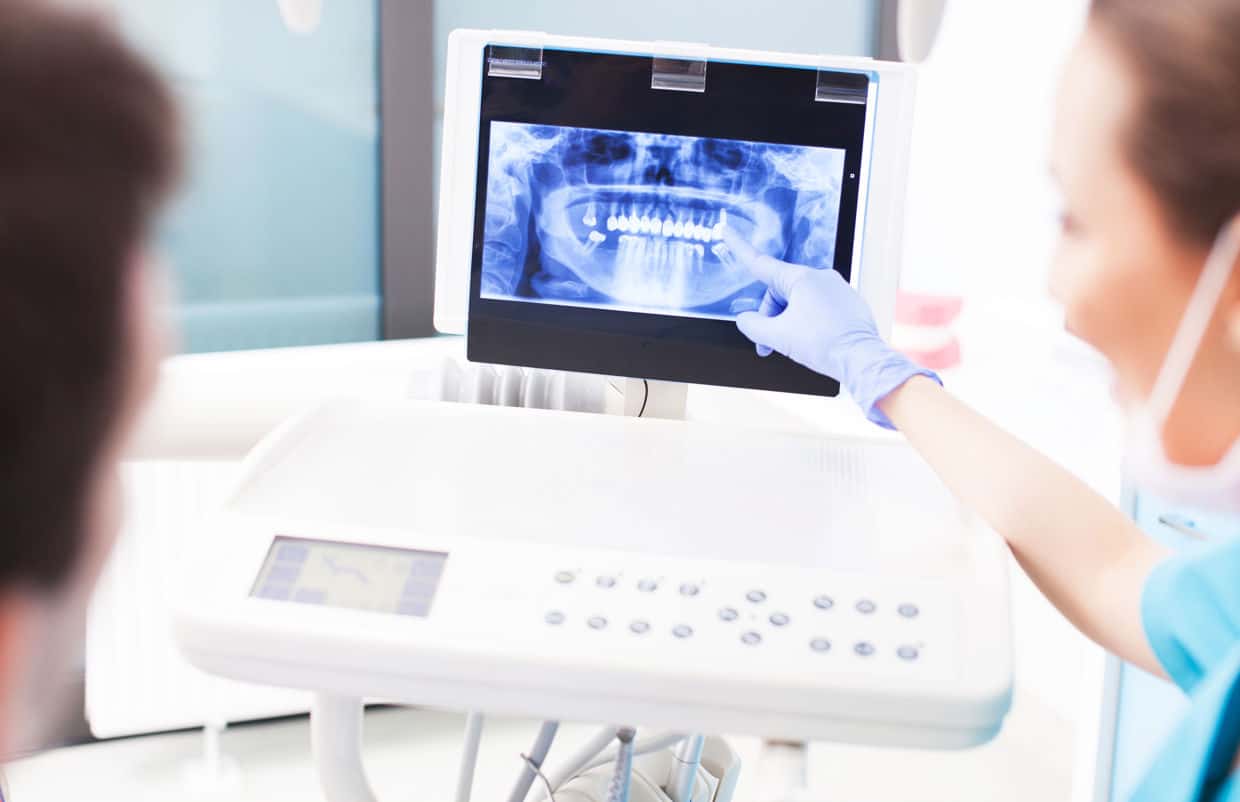Nothing is perfect. Even if the most experience doctors use the most proven methods, complications can still happen.
And dental implant failures show us this is true in the dental world too. So if this happens to you, what do you do?
In this insightful exploration, we delve into the complexities surrounding dental implant setbacks, shedding light on the causes of dental implants failure and offering guidance on how to navigate through such instances with informed decisions.
Signs of dental implant failure
The most common sign that a dental implant has failed is mobility, if the implant is moving. Even if it’s just slight (i.e. micro-movements), it could have failed and will only move more and more as time goes on. If you notice movement at all, it’s time to speak with your dentist.
Other indications that an implant has failed are pain and swelling happening over two weeks after the surgery. You could also experience infection, but not always.
If your dentist notices signs of dental implant failure, they’ll most likely order an X-ray of your mouth. In the case of a failed implant, the X-ray will show them bone loss around the implant.
Why do dental implants fail?
There are many reasons dental implants can fail. When it comes to short-term implant failures, most of the time it’s because the bone did not successfully integrate with the bone (i.e. osseointegration).
This can happen because of:
- diabetes,
- low bone density,
- poor oral hygiene,
- gum disease,
- or if the patient continued smoking after getting the implant.
Another possibility is that the body simply rejected the implant as a foreign body, although this is rare.
As far as long-term implant failure, the most common cause is peri-implantitis, which is a chronic infection in the gums that affects the implant’s supporting bone. If this happens, the symptoms show as:
- pain,
- discomfort,
- pus excretion,
- or bleeding of the gums.
Other long-term failure causations can include an acute injury to the site, broken screws, loosening of the abutment, or a fractured restoration. All of these issues can be correct though.
Overall, dental implants have a failure rate of about 5%, so it’s unlikely that you’ll experience an implant failure.

Dental implant failure treatment
Taking care of a dental implant failure depends on what caused it. What you should do contact your dentist, then they will talk with you about the best treatment options.
For example, if the implant is infected, you can try to clean the area regularly until you can visit your dentist. However, if the implant is failing because it’s damaged, your dentist may need to get a bone graft to add more support to the implant.
In severe cases of failure, the entire implant may need to be replaced, which is basically like starting from scratch.
Can failed dental implant be replaced?
Yes, a failed dental implant can be replaced. However, replacement implants don’t usually do so well.
If you need to get your implant removed, you have a tough choice ahead of you. You can get some sort of removable prosthesis, but that’s not the best option according to most professionals.
If you had just one implant fail and you also have nearby natural teeth that can be anchors, you can possibly get a fixed partial denture.
But most patients choose to simply get another dental implant. The problem is the success rate ranges between about 70% and 90%, much lower than the success rate of 95% for the initial implant procedure.
And because of this, many dentists charge extra to replace implants. It’s too risky, they say.
But with Dr. Golpa and his team, they will replace your G4 dental implant at no additional cost including any necessary corrective procedures (within the warranty timeframe).
Other doctors may consider implant replacement an exception, but for us it’s actually routine.

Prevention of teeth implants failure
The best defense is a good offense, as they say. In other words, prevention is the best treatment.
Oral hygiene
Before you notice any symptoms of failure, make sure you’re taking good care of your implants by keeping a good oral hygiene routine. Brush and floss and use antibacterial mouthwash, as you would with your natural teeth.
Proper diet
You may also need to adjust what you eat and drink too. There are bone-healthy foods like milk, eggs, and fish that you can incorporate into your diet.
And it’s probably better to avoid really hard foods or candy, at least until your dentist says it’s okay.
Regular check-ups
You’ll also need to have regular visits with your dentist to make sure everything is looking good, preferably every six months.
Experienced dentist
The quality of the dentist and surgeon is crucial — it’s probably the most important factor in avoiding an implant failure.
Fortunately, the doctors on Dr. Golpa’s team are some of the most experienced at this, specifically placing G4 implants, which is a new and improved version of the traditional All-On-4 procedure.